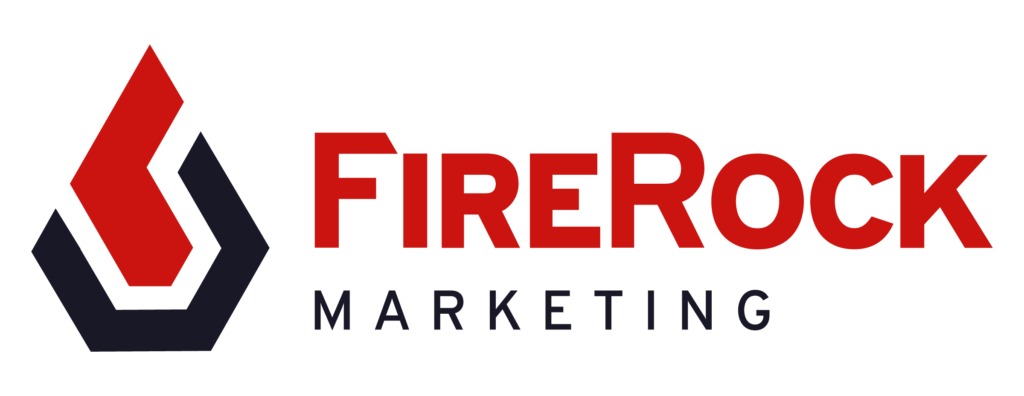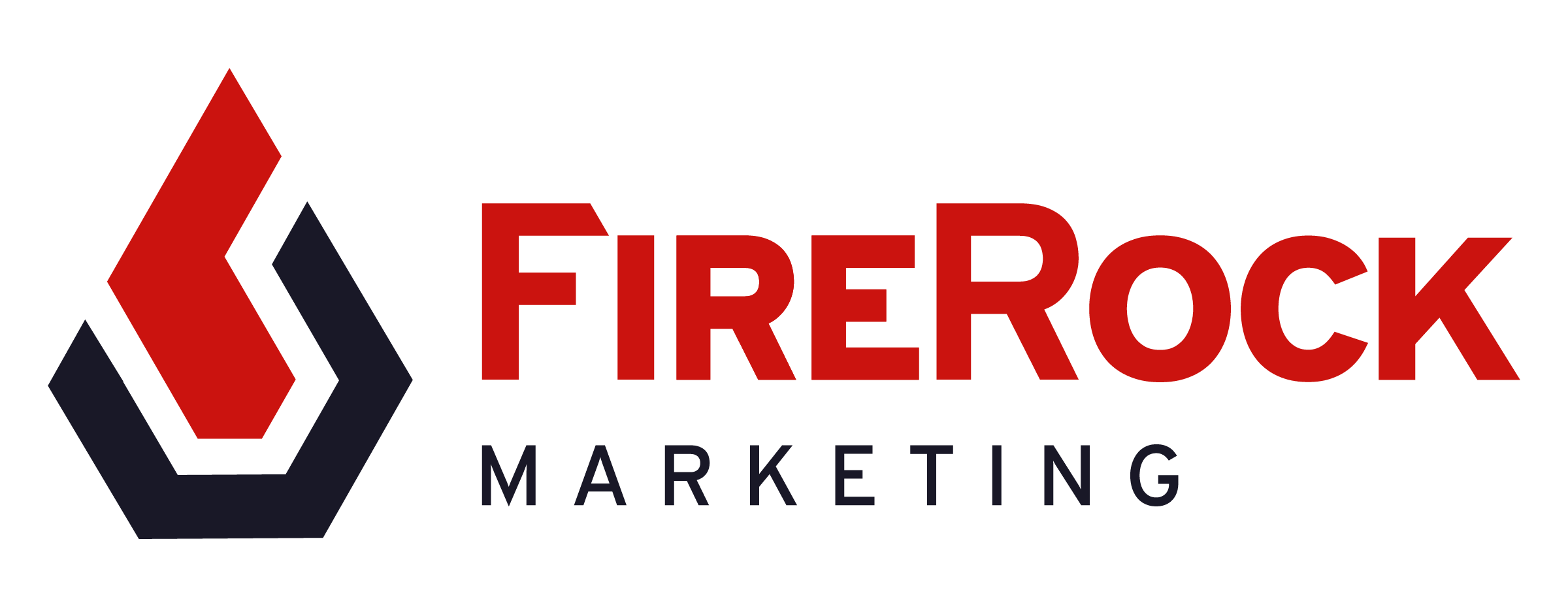Starting a venture, building a website, and struggling to drive traffic to it? You are not alone! Understanding Google Search Engine Optimization (SEO) is key to your digital survival in today’s competitive online market.
A brief snapshot of how Google SEO works:
- Keyword Research: Identify relevant keywords your target customers use when searching on Google
- Quality Content: Create high-quality content infused with your identified keywords
- Optimization: Fine tune each webpage on your site around a specific keyword
- Use of Tools: Leverage Google’s tools such as Google Search Console and Google Analytics for improved SEO
- User Experience: Ensure your site is mobile-friendly, and offers excellent user experience
At FireRock Marketing, we will guide you through the maze of Google SEO fundamentals—concepts, techniques, tools, and best practices—aimed at driving your online presence.
We understand business owners grapple with many challenges, not least among them is learning the ropes of Google SEO. Hence, we’ve developed this complete guide to help you comprehend and master the SEO domain. Let’s get started on your road to improved rankings, traffic, and conversions!

Understanding the Basics of SEO
As the digital marketplace grows, the importance of understanding Google SEO cannot be overstated. In this section, we’ll delve into what SEO is, how it works, and why it’s crucial for your business’ online success.
What is SEO?
SEO, or Search Engine Optimization, is the process of improving your website’s visibility for relevant searches. Simplifying it further, it’s about making your website better for search engines like Google. The better visibility your website has in search results, the more likely you are to garner attention and attract prospective and existing customers to your business.
Consider SEO as decorating your online store. The way your physical shop window displays products to entice customers, SEO does the same for your website in the digital world. It’s about using the right words and serving relevant information to your potential customers.
How SEO Works
If you’re wondering how SEO works, let’s break it down with an example. Suppose you sell children’s clothes, and you want people to find your website when they search for terms like “toddler clothes.” That’s where SEO comes into play.
The process includes several steps, from providing useful product information to using short and meaningful page titles & headings, including details about your business, checking image and video tags, and using descriptions that your potential customers can relate to.
SEO is about making changes to your website design and content that make your site more attractive to a search engine. You do this in hopes that the search engine will display your website as a top result on the search engine results page. As our expert at FireRock Marketing, Ryan Esco, always emphasizes, “SEO isn’t about tricking the search engine, but creating a website that is worthy of being found.”
Importance of SEO for Businesses
SEO is an essential tool for successful online marketing. SEO helps your business get found, even if the optimization process takes time to get right. It enhances your business’s online presence, making it easier for potential customers to find your products or services.
SEO is a cost-effective way to drive traffic to your website in the long run. It also improves the user experience, making it more likely for customers to stay longer and engage more with your website. In short, SEO is not just about search engines, but good SEO practices improve the user experience and usability of a website.
Understanding SEO basics is the first step towards harnessing its power to drive your business’s online success. In the next section, we’ll dive into more specific techniques to optimize your website for Google SEO.
How to Optimize Your Website for Google SEO
After understanding the basics of SEO, it’s time to delve into the nitty-gritty of optimizing your website for Google SEO. Our expert at FireRock Marketing, Ryan Esco, emphasizes that successful SEO isn’t just about getting your website noticed—it’s about ensuring your website offers value to your audience and aligns with Google’s guidelines.
Keyword Research and Implementation
The first step in optimizing your website is conducting comprehensive keyword research. This involves identifying the terms and phrases your target audience uses when searching for products or services similar to yours on Google.
To implement these keywords effectively, place them strategically in your content, particularly in the first 100 words of your webpage, your title tag, and your page URL. However, be careful not to overuse your keywords, as this can lead to keyword stuffing, a practice frowned upon by Google.
Creating Quality and Relevant Content
The key to attracting and retaining your audience is to produce high-quality, relevant content. This involves writing detailed, informative, and engaging content that addresses your audience’s needs and queries. Google’s algorithm favors content that offers value to its users, so always aim to provide the best possible content for each keyword on your list.
Importance of Meta Tags and Descriptions
Meta tags and descriptions play an essential role in Google SEO. They provide a summary of your webpage’s content and are displayed in search engine results. While they don’t directly influence your ranking, they can significantly impact your website’s click-through rate. Therefore, it’s crucial to write enticing meta descriptions that accurately represent your content and include your main keyword.
The Role of Backlinks in SEO
Backlinks, also known as inbound links, are links from one website to a page on your website. They are a crucial factor in Google’s ranking algorithm because they serve as a vote of confidence from one site to another. The more high-quality backlinks your site has, the more likely it is to rank well in search results.
However, not all backlinks are created equal. Google prioritizes the quality of backlinks over quantity, so focus on earning links from reputable and relevant websites.
Mobile Optimization and User Experience
Finally, with the increasing prevalence of mobile internet usage, it’s crucial to ensure that your website is optimized for mobile devices. A mobile-optimized site improves user experience, leading to longer time on site, lower bounce rates, and higher conversion rates.
Moreover, Google uses mobile-first indexing, which means it predominantly uses the mobile version of the content for indexing and ranking. Thus, if your website isn’t mobile-friendly, it could negatively impact your site’s visibility on Google.
Optimizing your site for Google SEO can seem daunting, but with these strategies and the expert guidance from FireRock Marketing, you can significantly improve your site’s performance on Google Search. In the following section, we will explore how to utilize Google’s free SEO tools to further enhance your SEO efforts.
Utilizing Google’s Free SEO Tools
To supplement your SEO efforts and make your website more visible on Google, utilize the free tools offered by Google. These tools provide valuable insights into your website’s performance, user behavior, and potential areas of improvement. Ryan Esco, our expert at FireRock Marketing, will guide you through these tools and how to use them effectively.
Introduction to Google Search Console

Google Search Console is a free tool that helps you understand and improve how Google sees your site. It offers detailed reports on your website’s search traffic, performance, and indexing status, helping you identify areas where you can enhance your site’s visibility in Google Search results.
For instance, the URL Inspection tool within Google Search Console provides detailed information about how Google crawls, indexes, and serves your pages. This information is crucial in understanding how Google perceives your website and how to optimize it for better search results.
How to Use Google Analytics for SEO
Google Analytics is another powerful tool that provides comprehensive statistics about your website’s traffic, user behavior, and conversions. It allows you to track metrics that detail your search traffic changes, helping you understand which strategies are working and which ones need adjustment.
To make the most out of Google Analytics for SEO, start by setting up goals to monitor the actions that you want your users to take on your site. Analyze your organic search traffic to identify the keywords that are driving traffic to your site. Additionally, monitor your site’s bounce rate and page load time to ensure a positive user experience.
Importance of Google Business Profile in SEO

A Google Business Profile is a free tool that lets you manage how your business appears on Google Search and Maps. It’s a critical factor in local SEO as it improves your business’s visibility in local search results and provides potential customers with essential information about your business.
Ensure your Google Business Profile is complete and up-to-date, including your business’s name, address, and phone number. Regularly respond to reviews and update your business hours to enhance your profile’s relevance and trustworthiness.
By leveraging these free tools from Google, you can gain critical insights into your website’s performance, understand your audience better, and optimize your site for improved visibility in Google search results. In the next section, we will delve deeper into SEO and explore the interplay between SEO and PPC, so stick around!
SEO vs PPC: Which One is Right for Your Business?
At FireRock Marketing, we often get asked by our clients: “Should I invest in SEO or PPC ads?” The answer is not as straightforward as it might seem. It largely depends on your business goals, budget constraints, and time frame.
Understanding PPC and Its Benefits
Pay-Per-Click or PPC refers to an online advertising model where advertisers pay each time a user clicks on one of their online ads. Google Ads is Google’s PPC advertising solution, allowing businesses to bid on keywords for a chance to show ads next to searches on Google.com.
One major benefit of PPC is that it delivers immediate results. As soon as your ad campaign is live, your ads start appearing in search results, instantly putting your business in front of potential customers. This makes PPC a good choice if you’re looking to drive traffic to your site in the short term or promote specific deals or products.
Another advantage is that PPC ads can help you reach a broader audience. Google Ads gives you the option to show your ads on thousands of sites across the web, which form the Google Display Network (GDN).
Though, PPC won’t improve your organic search rankings. It’s more about putting your business in front of potential customers at the exact moment they’re searching for a business like yours.
The Interplay Between SEO and PPC
SEO and PPC are not mutually exclusive strategies. In fact, they often work best when used together, complementing each other to create a well-rounded, effective marketing strategy.
While PPC can deliver quick wins, SEO is a long-term strategy. Improvements to SEO can help your website rank higher on Google Search by making it more relevant to users. It’s about providing valuable content and a great user experience, which boosts your website’s credibility and trustworthiness. This can lead to a higher click-through rate (CTR), more conversions, and ultimately, a stronger online presence.
So, if you’re hoping to establish a strong and sustainable online presence, investing in SEO is the way forward. However, if you’re looking for immediate visibility and have the budget for it, PPC can be a powerful tool in your marketing arsenal.
At FireRock Marketing, we recommend a balanced approach. Use PPC to gain quick visibility and drive immediate traffic while working on your SEO to build a solid foundation for long-term success. If you’re interested to learn more about how these strategies can work together for your business, check out our SEO and PPC services.
Whether it’s SEO or PPC, the ultimate goal is to connect with your target audience and meet their needs effectively. That’s what we aim to help you achieve here at FireRock Marketing.
Cost of Google SEO
Investing in Google SEO is a crucial aspect of your business’s digital marketing strategy. However, understanding the costs associated with it can often be a challenge. At FireRock Marketing, we believe in transparency and helping our clients make informed decisions. So, let’s delve into the elements that influence the cost of SEO and how you can determine your SEO budget.
Factors Influencing SEO Costs
When it comes to the cost of Google SEO, several factors come into play:
- Business Size: The size of your business and the scale at which you operate can impact the SEO costs. A startup might spend anywhere from $750 to $1500 per month, while an enterprise might invest more than $5000 per month.
- Industry Competition: The level of competition in your industry influences the resources you need to invest in to outperform your competitors.
- SEO Goals: The specific SEO goals you have in mind also determine the cost. For instance, if you’re targeting multiple keywords or looking to rank in various geographic locations, your SEO costs might increase.
- Agency Expertise: The expertise and experience of the SEO agency you hire can influence the cost. Top-notch agencies like ours with a proven track record and expert team members like Ryan Esco often charge more, but the investment is worth it considering the potential return on investment (ROI).
How to Determine Your SEO Budget
Determining your SEO budget is a crucial step in your digital marketing journey. Here are a few steps to guide you through the process:
- Define Your Goals: Understand what you want to achieve with your SEO efforts. It could be improving website traffic, increasing conversions, or enhancing online visibility.
- Understand Your Financial Limits: Before setting your budget, take a realistic look at your finances. Understand what you can afford to spend without negatively impacting other areas of your business.
- Research Costs: Get an idea of the average SEO costs for businesses of similar size and industry. This will give you a baseline for your budget.
- Consider ROI: SEO is an investment, not an expense. When setting your budget, consider the potential return on investment. Spending more on high-quality SEO services can often lead to better results in the long run.
- Work with Professionals: Consult with SEO experts like us at FireRock Marketing. We can help you understand your SEO needs and guide you in setting a realistic and effective budget.
SEO is not a one-time expense but an ongoing investment that, when done right, can yield significant results. By understanding the factors influencing the cost and having a clear method to determine your budget, you can make the most of your SEO efforts.
Conclusion: Mastering Google SEO for Business Success
Mastering Google SEO is an essential step towards ensuring your business’s online success. By understanding the key principles of SEO and applying them strategically, you can significantly improve your website’s ranking on Google search results, leading to increased visibility, traffic, and ultimately, conversions.
SEO isn’t just about stuffing your content with keywords. It’s about creating high-quality, relevant content that resonates with your audience and addresses their queries effectively. It’s about making your website user-friendly and mobile-optimized to ensure a seamless user experience. And it’s about leveraging Google’s free SEO tools to gain valuable insights into your website’s performance and make data-driven decisions.
As Ryan Esco, a topic expert at FireRock Marketing, puts it, “The sites that perform best in Google aren’t just good at SEO. They’re good at digital marketing in general.” This involves not just SEO, but also other disciplines like content marketing, public relations, branding, coding and web development, user experience, and more.
Furthermore, it’s important to understand the interplay between SEO and PPC, and how to use them together for a well-rounded digital marketing strategy. While SEO helps enhance your business’s online presence in the long run, PPC allows you to reach customers more immediately and customize your campaign on the fly.
And lastly, bear in mind that SEO is not a one-time expense but an ongoing investment. The cost of SEO can vary based on various factors, and it’s important to set a realistic and effective budget that aligns with your business goals.
At FireRock Marketing, we’re here to help you navigate the complex world of Google SEO and harness its power to drive your business success. Whether you need help with keyword research, content creation, site optimization, or understanding Google’s tools, our team of experts is ready to assist.
To learn more about our services, check out our Digital Marketing Agency Services and SEO Services pages.
Mastering Google SEO might seem daunting, but with the right guidance, tools, and strategies, it’s an achievable goal that can take your business to new heights. So, get started today and watch your online presence grow!


